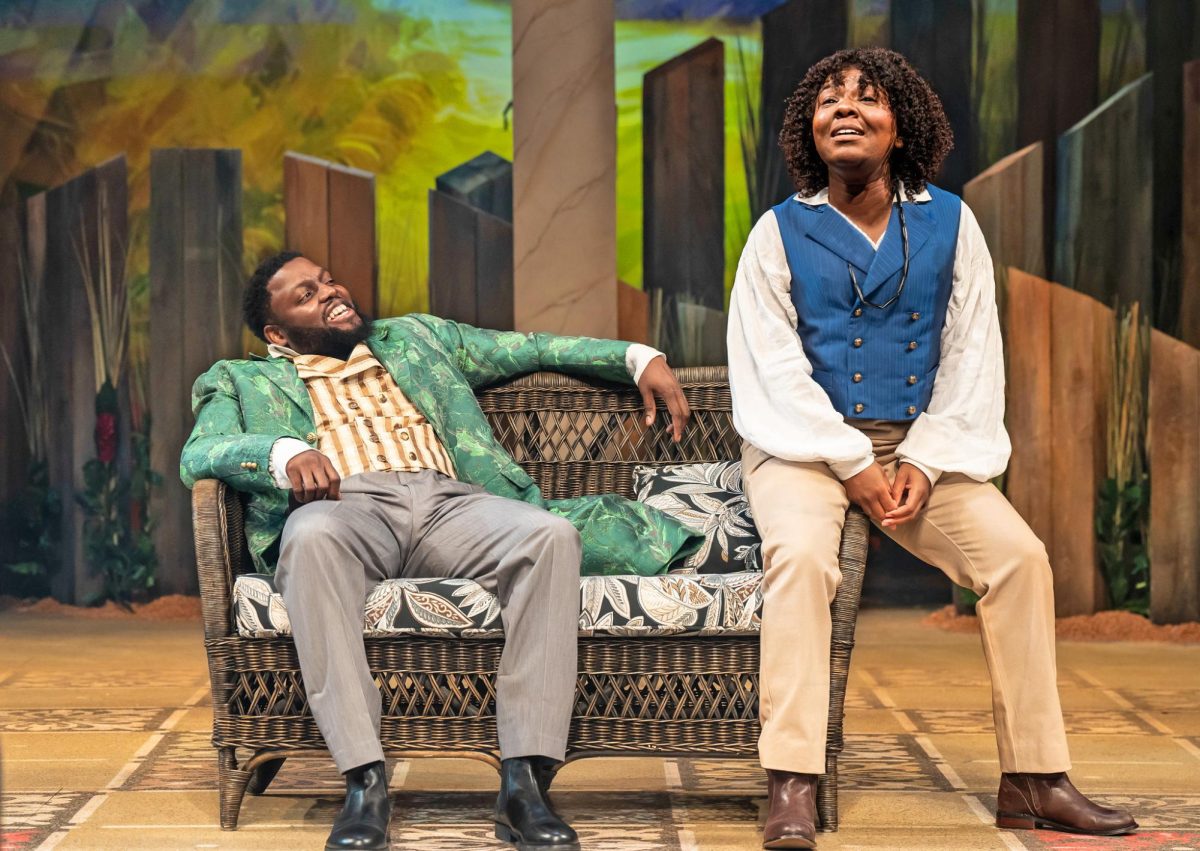While sulky nobles and reunited twins might play a prominent role in Shakespeare’s Twelfth Night, the real center of the play is the character Malvolio.
A pompous butler, Malvolio is every too-strict high school teacher or grim-faced boss brought to the stage. When his fun-loving opponent Sir Toby Belch decides to get some vengeance on him, it’s easy to read the situation as a kind of David-and-Goliath set-up—the righteous comeuppance of a pedant by his merrier foes. Of course, the brilliance of Shakespeare is that he doesn’t let this easy interpretation slide. Malvolio, after all, is in fact Sir Toby’s social inferior because he is a servant. And while the initial vengeance taken by Sir Toby is hilarious (the yellow stockings scene, in which a ridiculously dressed Malvolio proclaims his love to a baffled Olivia, might rank as one of the most memorable moments in all of Shakespeare), only the most sadistic of audience members will keep laughing once Sir Toby and company start psychologically torturing Malvolio in a pitch-black dungeon. The grim splendor of Twelfth Night lies in this storyline’s lack of resolution—Malvolio casts a pall over the joyful weddings concluding the play with his bitter profession of revenge—and audience members are left to struggle with the story’s significance. Poor performances of Twelfth Night tend to elide the complexities of the Malvolio story, usually by making him a worse person than he actually is.
The miracle of the Chicago Shakespeare Theater (CST)’s reimagining of Twelfth Night is that they manage to honor all of the darkness of the Malvolio story while still making the play a warm-hearted romp.
Part of the success of the CST’s production lies in their ingenious choice to switch out Illyria’s Italian origins for a Caribbean island. This is not a haphazardly done setting: the beach-themed decor and enthusiastic reggae music combine to make the world come alive. An instinctive Shakespeare purist, I was hesitant when I heard modern beats play instead of “O Mistress Mine,” but by the end of the production, I had to admit that the choice worked excellently. It enthused the audience and made the world feel lived-in. I left with the distinct sense that the Illyria onstage was real, and that its characters would continue their lives and friendships together after the curtain fell.
Part of that sense came from the chemistry between the characters. The sweetness of Jaeda LaVonne’s Viola works perfectly with Yao Dogbe’s Orsino; when she pined over him or he complimented her appearance, I found myself believing in the potential for their romance even though they had a while before it became official. The scene in which Christiana Clark’s sarcastic Olivia falls in love with Viola is also thrilling. Even some of the smaller roles shone. Alex Goodrich’s Sir Andrew Aguecheek came off as charmingly dopey, and the play’s director made the smart choice of having Adam Poss’s Antonio be clearly gay rather than just heavily implied. He’s introduced buttoning his shirt next to an also-dressing Sebastian (Justen Ross), after a presumed tryst, and during the wedding scene at the end, rather than be left alone as in the original play, he walks off stage merrily holding hands with a male extra. A few lines were skipped along the way, but never to a distracting extent.
The star of the show, of course, was Paul Oakley Stovall’s Malvolio. Stovall had the audience in stitches during the yellow stockings scene, and though he hammed it up slightly too much (a new viewer could be forgiven for missing that he is not, in fact, mad), it would be cruel to criticize such a phenomenal performance. The prison scene was handled in the best way of any Twelfth Night production I have ever seen—empathetic, somehow inspiring, and a tough-enough watch that not a single audience member was tempted to laugh. Even Israel Erron Ford’s Feste seemed chastened by Malvolio’s resolute perseverance. The director chose to soften Malvolio’s harsh departure by having him accept a flower offered by Feste in the final dance scene; while that might not have been quite accurate to the original script, it did not feel unearned.
Often overly wholesome plot resolutions can feel treacly, but the crew’s convincing performances succeeded in making this Twelfth Night genuinely heartwarming. Overall, the CST’s Twelfth Night was an innovative and enjoyable spectacle, with plenty of heart. Perfect for the whole family, I would recommend it to anyone.









